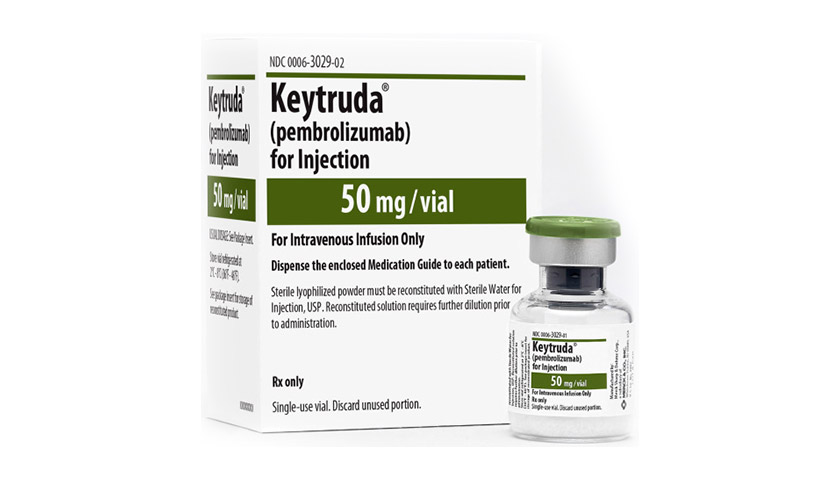Merck & Co's Keytruda approved for second "tumour agnostic" use

Merck & Co’s Keytruda cancer immunotherapy has been approved by the FDA in another “tumour agnostic” use, in patients with high levels of mutation.
Keytruda (pembrolizumab) has been approved for advanced cancer with a biomarker known as Tumour Mutation Burden – High (TMB-H), defined as at least 10 mutations per megabase, as detected by an FDA-approved test.
Tumours must be unresectable or metastatic and have progressed following previous treatment, and there must be no satisfactory alternative treatment options for patients to qualify.
This is an accelerated approval based on tumour response rate and durability of response data and must be verified by further data from larger trials.
This is the second time that Keytruda has been approved based on a biomarker, rather than the location in the body where the tumour originated.
In 2017 the FDA approved Keytruda for patients with a biomarker known as microsatellite instability-high or mismatch repair deficient (dMMR).
This was the first time that a drug had been approved on the basis of a biomarker, and paved the way for other drugs targeting the genetic characteristics of the disease.
Since then companies such as Bayer have also produced drugs that target certain biomarkers in this new approach to treating cancer.
The FDA also approved the FoundationOne test as the companion diagnostic to identify patients with solid tumours that are TMB-H.
The accelerated approval was based on data from a prospectively-planned retrospective analysis of 10 cohorts of patients with various previously treated unresectable or metastatic solid tumors with TMB-H, who were enrolled in the KEYNOTE-158 trial.
The trial excluded patients who previously received an anti-PD-1 or other immune-modulating monoclonal antibody, or who had an autoimmune disease, or a medical condition that required immunosuppression.
Dr Scot Ebbinghaus, vice president, clinical research, Merck Research Laboratories, said “TMB-H, defined as 10 mutations per megabase or more, can help identify patients most likely to benefit from KEYTRUDA. We’re pleased that our collaborative efforts to advance biomarker research have resulted in our ability to provide a new treatment option that addresses a high unmet medical need for these patients with cancer.”











